The president of the Nigerian Football Federation (NFF), Amaju Pinnick, has blamed the “god of soccer” for Nigeria’s failure to qualify for next year’s African Cup of Nations in Gabon. After the Super Eagles went down 0-1 to Egypt in Alexandria on Tuesday, Pinnick, who had obviously run out of scapegoats, chose, this time, to pin the blame on the gods, “for refusing to smile on Nigeria.”
But the gods have been on a holiday, just that Pinnick was either not looking or had passed seeing. His dilemma is not difficult to understand. For the second straight time since he became president of the NFF, Nigeria will not be playing at the African Nations Cup. It’s also the first time in the history of the competition that Nigeria will be absent back to back, apart from the period the country refused, as defending champion, to participate in the tournament in South Africa in 1996 following a diplomatic row with Pretoria and the subsequent two-tournament ban which stretched to 2010.
Pinnick has to blame the gods because he is confronted with the embarrassing fact that under him the NFF would have to do a lot more to surpass former Super Eagles coach, Stephen Keshi, the man whom he was quite pleased to hang by the balls.
Keshi had a big head and thin skin, yet he was the last man to snatch victory from the jaws of defeat when he won the AFCON in South Africa in 2013 and took Nigeria to the World Cup in Brazil, defying the gods who had, in fact, hung him out to dry.
Three years, three coaches and half a dozen experiments and the team is barely a shade better than the scrappy, big for nothing squad that Keshi managed to cobble together for AFCON.
Nothing fundamental has changed, yet Nigerians are expecting big results, and Pinnick, who should know better, is blaming the gods.
No one is saying it’s his job to play or coach. Nor are his credentials in doubt. But he was so good at criticising Keshi – sometimes justifiably – the least expected of him was to produce results at a level of performance equal to, if not higher than, what he met when he took office two years ago.
The gods did not make Sunday Oliseh coach. Pinnick did. The disaster brought upon the team by Pinnick’s decision to choose a good ex-Eagles captain and successful TV critic, when what Nigeria needed was a solid manager, was part of what played out in Alexandria on Tuesday. The disruption caused by Oliseh’s dramatic appointment, and his no less dramatic exit, worsened the fracture of the wounded team.
Anyone who watched the game might agree that the Super Eagles lost it in Kaduna, when they were overcome by the deepest and longest-running disease in Nigeria’s national team – lack of concentration.
Pinnick should have taken responsibility instead of making a blame offering as sharwama to the gods. A straightforward apology might not take us to Gabon, nor would Pinnick’s head on a corner flag post, but it would at least give us the comfort of knowing that the guy in charge is not taking us for granted. It was callous to rub the gods on our injury.
Pinnick and co have only succeeded in confusing the debate about the future of our national team. Now, instead of focusing on why we still manage to do well at the junior levels and fail disastrously on the big stage, the debate has drifted to whether or not we need a foreign coach.
Samson Siasia is on the ball. He was absolutely correct in saying that the Eagles’ biggest mistake was to slip up in the last three minutes of the first leg against Egypt. Anyone who is still in doubt that football is played for 90 minutes, even slightly longer sometimes, might be pleased to know that, by October, 42 of the goals scored by 17 clubs in the English premier league this season were scored in the last ten minutes of the games.
Had Siasia taken over from Keshi, it’s unlikely that we would be in the mess in which we now find ourselves. Instead of letting Siasia return quickly to the drawing board to see how he can mend what is left of the broken team, a distracted Pinnick is stoking discussions about a foreign coach. What for?
I’m not for Siasia out of some sense of mushy patriotism. He holds the most outstanding record of coaching at the junior levels in the country today, a record that can compare with that of any coach anywhere in the world. That should mean something to us. How he has also managed this achievement, working with Nigeria’s peculiar collection of football administrators, should mean something to us as well.
It’s not enough for Pinnick to dodge the ball and tantalisingly wave the World Cup to comfort us. We need to see a plan that gets us there. That plan should include better incentives for private sector investment in the domestic league (most state-run clubs are mere Governors’ Boys’ Clubs); better coordination of youth competitions, especially at the secondary school levels; deeper engagement with football academies, and a less politically tainted way of tracking the performance of Nigerian players abroad.
We need a plan that makes Nigeria an open field to play not just football, but any competitive sport. Will Pinnick please leave the gods and kick the ball?
Happy World Orubebe Day!
How time flies! It was on March 31, last year, three days after the first general election in which the opposition defeated a ruling party, that Godswill Orubebe tried to unmake history. He stormed the headquarters of the Independent National Electoral Commission where Attahiru Jega was announcing the final results and sat on the neck of the INEC chairman. The country stood still. After what seemed like an eternity, reason, later described as “Jegamicyn” – an extraordinary ability to remain calm in the face of extreme provocation – prevailed and Orubebe climbed down. The final results were announced and APC’s Muhammadu Buhari defeated incumbent President Goodluck Jonathan. As the country remembers that dramatic day, not a few have suggested immortalising it by naming it World Orubebe Day!
Ishiekwene is the managing director/editor-in-chief of The Interview magazine and member of the Board of the Paris-based Global Editors Network
1 comments

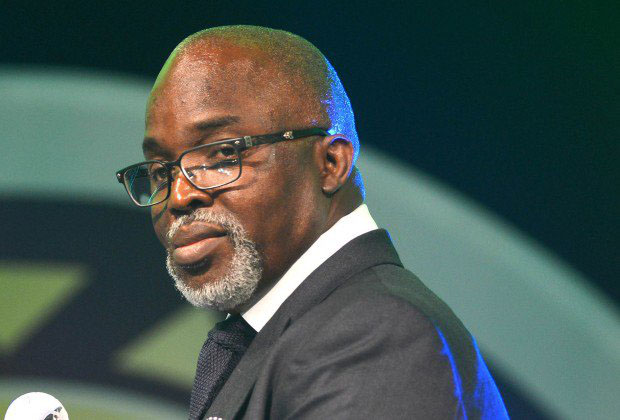
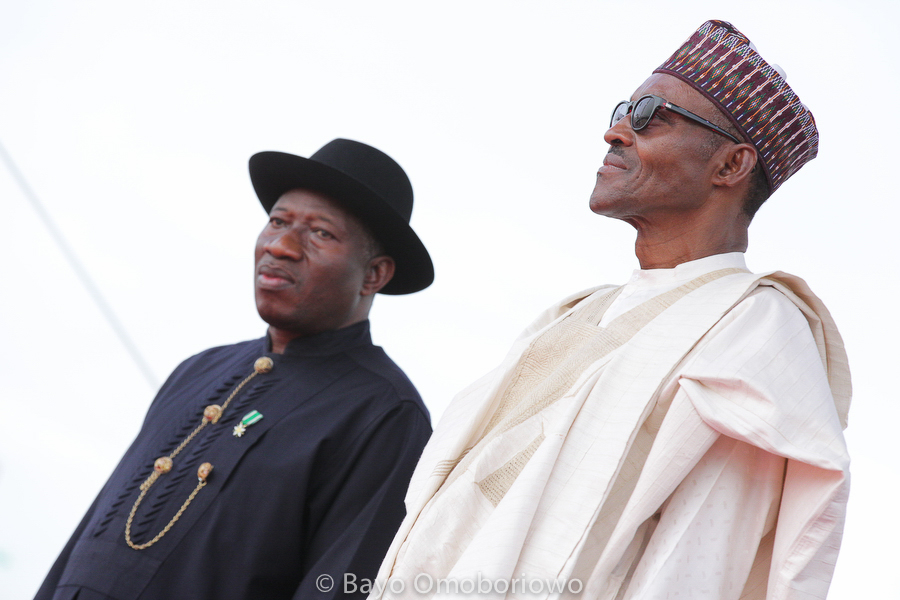

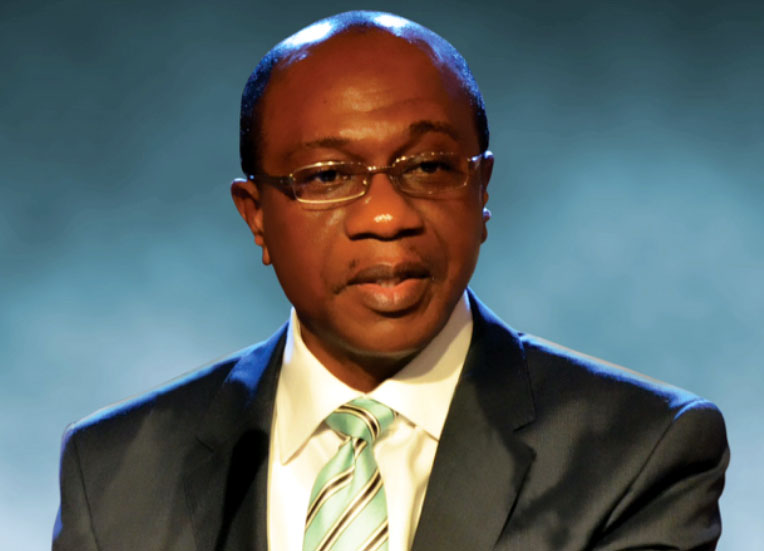
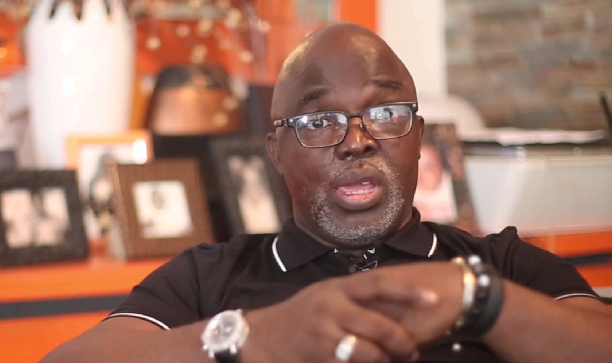
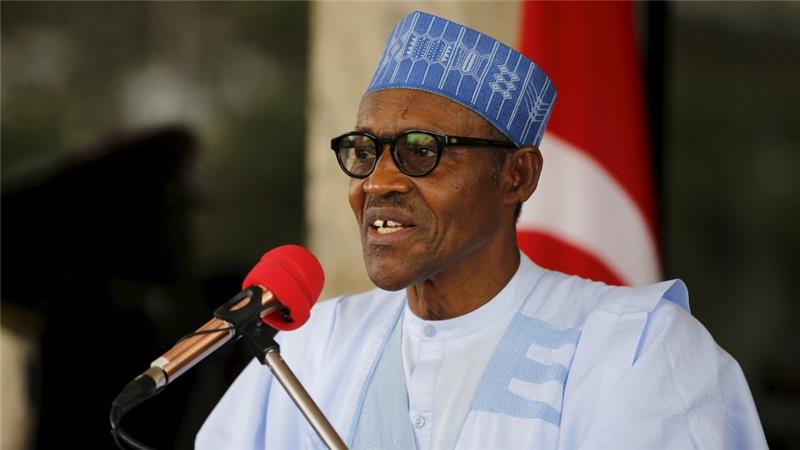
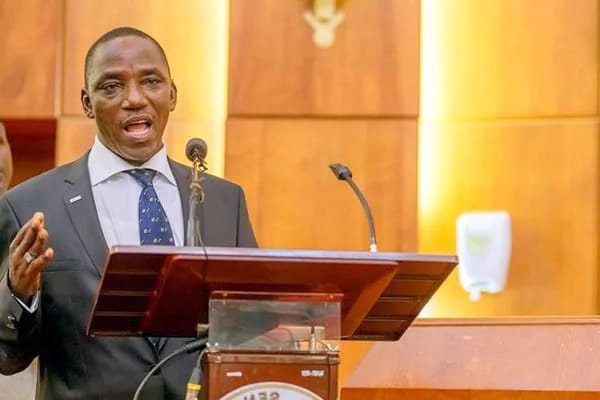
Sigh…